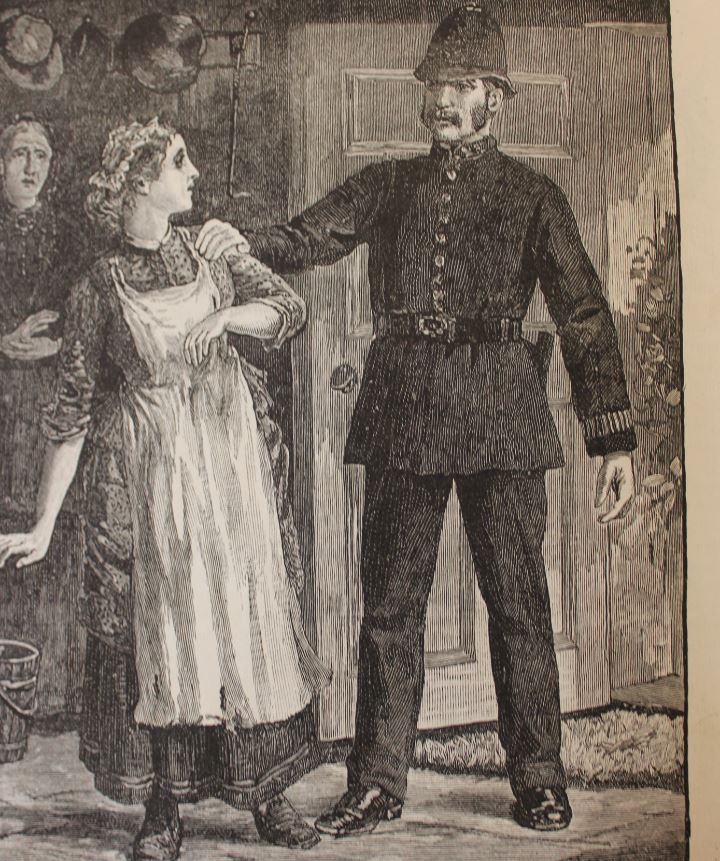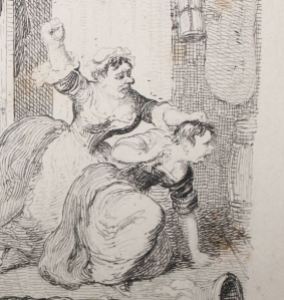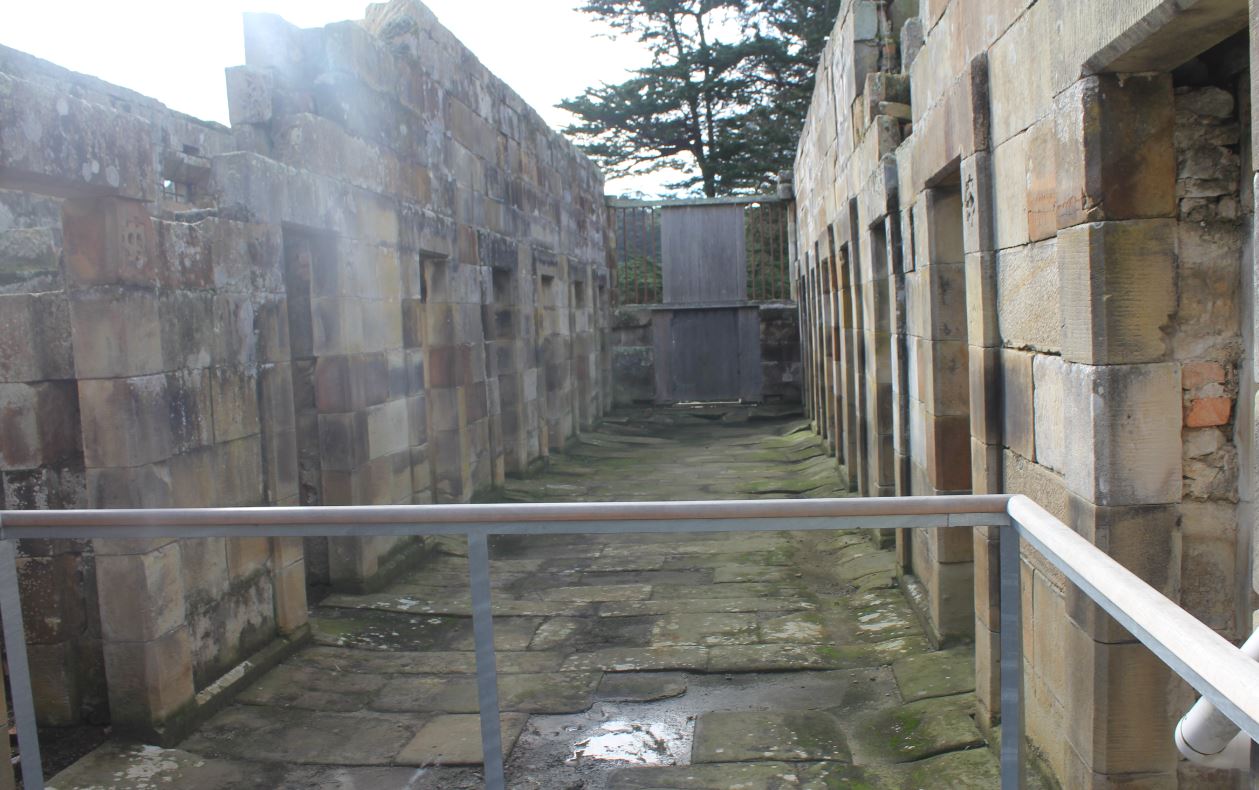Secrets come in all shapes and sizes, and what one person feels the need to keep under wraps, someone else will be happy for the world to know.
This is one of the fundamentals of family history. Anyone who delves will soon notice the differing reactions to their new hobby by various family members. We don’t get very far until the family trusts us. We can bypass many obstacles now the internet is here, but it is still hard to research if the family is against it.
When my DNA test results first came in I emailed a 3rd-5th cousin. He sent me a very courteous email telling me that his niece was the ‘keeper of the family secrets’ who managed his DNA kit and he was forwarding my email to her. The phrase has stayed with me. It’s a very honourable title in my mind.
While researching we may learn things about living family members which we haven’t actually been told. Or we might be told some things in absolute confidence. Some wish to hide an adoption, others wish to appear rich when they are almost broke, still others don’t want the world to know that their parents were never formally married. Some don’t want anyone to realize they cannot read and write. We know these things happen and we know it doesn’t change who we are and who our family is. We can respect their right to privacy and we will keep the secret, even though it is something we are sure our relatives would perfectly understand.
Occasionally in my family investigating I learn something that perhaps would be better out in the open. What if the person who is almost broke can’t afford to go to the doctor yet other family members would be happy to help? What if someone has been ostracized for an action and I discover the real perpetrator was a different family member? But this is their secret, not mine. Maybe I can persuade them that the knowledge won’t change the family’s view of them but I can’t break their confidence. In my mind, I am bound by a non-disclosure contract as rigid as that which binds police officers, doctors and public servants.
There are some situations where duty of care overrides this – child abuse, mental incapacity or a person at risk of serious harm. The usual caveats apply. But that’s not what most of us find. What we find are the little things that are meaningful to one person but not another.
These are the situations which can cement us as the Family Recorder or relegate us to the one who “did some research into the family but didn’t get too far”.
In my own research, I’m comfortable about exposing the secrets of the far past where they have no impact on living family members, but this does take some knowledge of the views of the existing family members. I have occasionally made mistakes. I have one elderly great aunt who did not take the knowledge of a convict ancestor at all well. It was a shame since that particular convict ancestor was a lady we can all be very proud of.
I also upset a family member once by suggesting we connect with a certain other local family which had a reputation for petty crime, noisy squabbles in the town and a penchant for picking fights with anyone when they’ve had a few drinks. The current elderly generation firmly state that we are no relation and need to have nothing to do with them. The reality is that we are related but our branch told their children to keep away to avoid the children on our side ending up in the same downward spiral.

Some events are remembered but not spoken of. From The Sunday At Home 1886 by the Religious Tract Company London
When we have our DNA tested, we run the risk of uncovering secrets which were very successfully buried. The unexpected sibling, for instance – or a complete absence of match to a known sibling. This is definitely the big one and has occurred often enough that at least one DNA company has altered their privacy policies to avoid any culpability for exposing the truth. Yes, this has now happened in my family too. We have a new close relative, a person known for many years as a neighbour and now known as something more.
I won’t be any more explicit as there is a lot more talking and disclosing to be done, but in this case there is not a huge amount of surprise. Our anticipated connecting family member was always the black sheep of the family and the person most likely to mingle freely where no one knew they were mingling.
So what do you do as the kit manager of three or four kits, the results newly in, and the truth staring at you from the screen? No one knows the truth but you. Chances are the person whose kit you are managing will never feel interested enough to view their results, let alone understand what they are seeing. You might pull it off. Pretending not to notice might be the right thing to do. The answer probably depends on what else is happening in that family at the time. People can only handle so many issues at a time. Someone in the throes of divorce doesn’t need to learn right now that they are adopted.
But keeping a secret from the family in general is different to keeping a secret from the subject of the secret. This is their secret and accidentally it has come to you instead, like a misdirected letter in the mail. If I receive a letter addressed to someone else I know I have no right to keep it from them. There is no awkwardness at all about passing over a letter. With a DNA result, unexpectedly we know something very intimate about another person, something that might shake their world. I have observed in my life that once a secret begins to emerge, it has a habit of forcing its way towards full exposure. We are not trained for this and never expected our pleasant hobby to throw this at us, but here it is.
If genetic genealogy comes to a grinding halt at any time in the future it will probably be due to this very issue. This can be confronting and distressing. There are various committees in different countries already debating the matter. It is not really an invasion of privacy since everyone who tests has volunteered and signed their permission. But if I discover a sibling for myself, have I inadvertently invaded my parents’ privacy? A physical characteristic has brought the truth out. Is it fundamentally different to a golden haired child born into a family with a black haired father who also has two black-haired parents? It’s open for debate and is being debated in various places.
I have a good friend who started his family tree at my prompting. No one had done such a thing in his family and he had a very interesting family. He had two half brothers but strangely enough he had never thought about their exact age. All children were raised together after the half brothers’ mother passed away. He asked them their birth dates for his family tree and discovered that one of them was exactly two months younger than himself. His parents were married before he came along and stayed married. The recognition of his father’s affair shocked him. He has not touched his family tree since.
I felt rather bad about it for a while, almost as if I was responsible. However, he has rallied. His half brother had recognised the truth long ago and was waiting for it to twig. It has, after several months of coldness, cleared the air and they have moved on.
After thirty years of family research I now realize how often this happens. Also – where there is one instance of it, there’s an even better chance of a second. This holds true in my own family. The young man who sowed his wild oats in one direction often turns out to have gone in all directions. In the family branch now holding our newly discovered family member, I already had a couple of unexpected additions found through church baptism records. In a tiny village the baptizing minister knew quite well who was spending time with whom and so did both families involved. The family never spoke of it but it’s there in ink and parchment. This one is a little different as the child was born to a properly married couple.

Fight scene from The History of the Adventures of Joseph Andrews by Henry Fielding 1841 Centenary edition p 306
I have a lot of sympathy for someone who suddenly doesn’t know their parents when they thought they did. In my current family revelation, paternity is still uncertain. We have two couples – unrelated – each of whom had a child. It turns out that both children are half siblings. We are pretty sure of each child’s mother so they share a father. Which of the two men it is has not yet been determined. One of them will ‘lose’ the father they thought they had and will gain a new father. Both sets of parents are now deceased, this happened a long time ago. Each child has a well researched tree and that adoptive parent certainly has his place in the family still. He was still their father – but genetically speaking that branch is severed and the DNA kit will continue to receive matches for a family the child never knew they had. DNA says it like it is.
I have two DNA matches with adoptees who would dearly love to know where they came from. I have a DNA match with a girl who doesn’t know who her father is and would love to find him. At some point, I’m sure all children who don’t know their parents wonder who they were and if they share any traits and what happened that the parent could not be there for them. The thought of reuniting severed families is a heartwarming one for most family historians.
On the other hand, I have a relative who adopted out her child and while she would love to contact him, it would cause conflict with her husband who is a very jealous man and not the child’s father. I have a friend with psychiatric issues who proved incapable of raising her child and that one was adopted out too. If that child comes looking for her mother, she will find a lady living very convincingly in a fantasy world of her own creation. I hope that child does not come looking because it takes a whole lot of experience to spot the fallacies in this woman’s reasoning. She’s very convincing in her delusion. But of course the child will! It’s human nature. Other birth parents were victims of a rigid society and were simply not allowed to raise their own offspring although willing and able. There are two or more sides to every story.
All we can do is be aware that we risk uncovering skeletons and maybe have a plan for dealing with it in place before the event. The easiest thing would be to avoid the research in the first place, but hopefully that solution won’t satisfy anyone. We are family historians because we want to know our family and that means our true family in its mix of acknowledged and unacknowledged parents, siblings, cousins, family friends and pets. If there are anomalies, that’s just part of what makes our family the unique entity it is today. Once the truth is out it is no longer a threat to the family’s stability, and most of us will just experience the reassurance of finding our research confirmed. But we need to understand people, those in our family in particular, in order to deliver and help them cope with any surprises. It takes some empathy and consideration.
This was a long post and unusually serious, but a subject which I felt needed to be covered. It is part of my family history journey and part of many others’ as well. I don’t know for sure if my approach is the best, but it is the one that has served me best. It is well worth being prepared for this before it strikes.
It’s like a forest fire approaching the house. It might never happen but if it does and you don’t have a prepared drill it is very hard to think clearly in the heat of the moment. The Keeper of the Family Secrets has a particular role to play in the protection of their family.

Leave a Reply